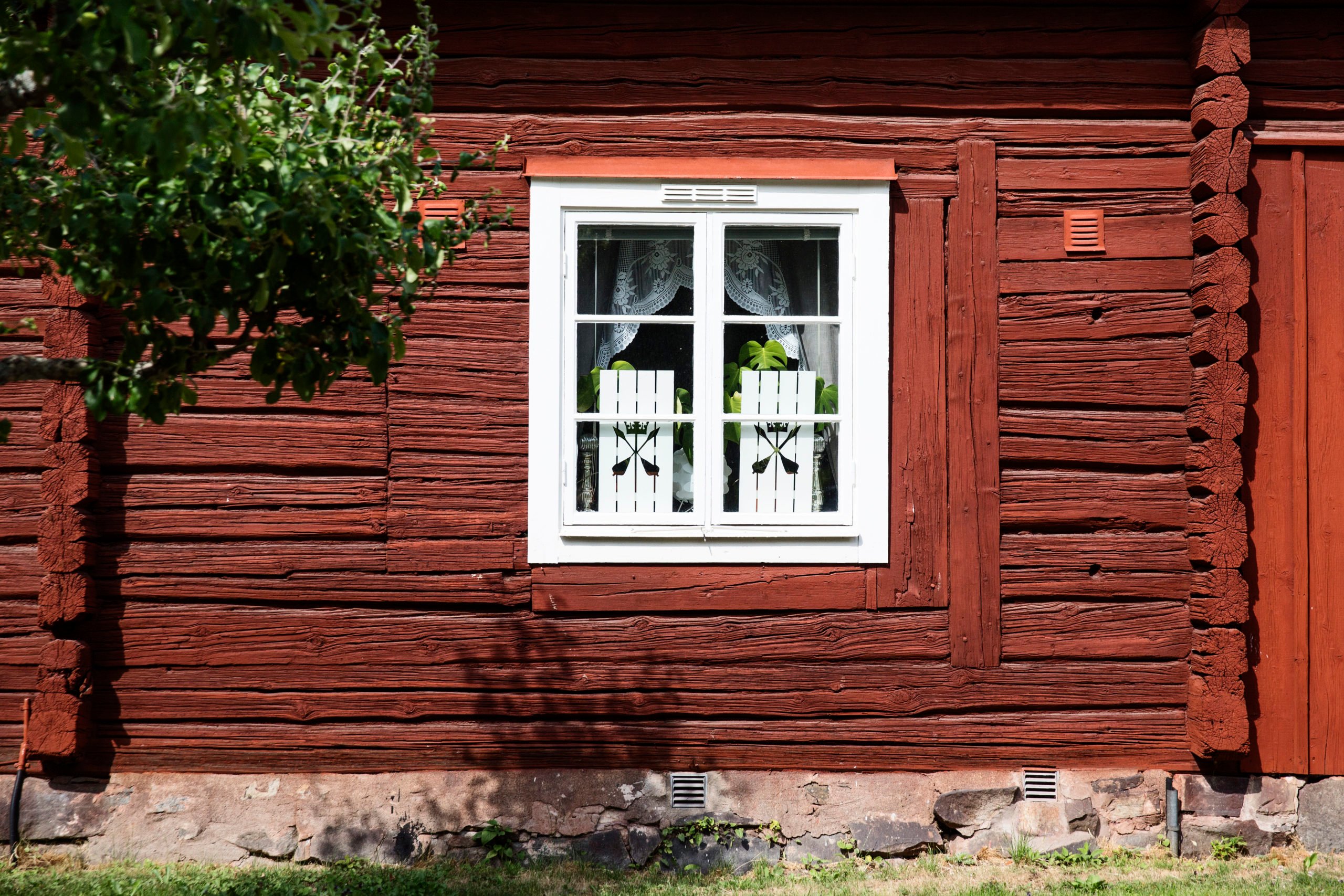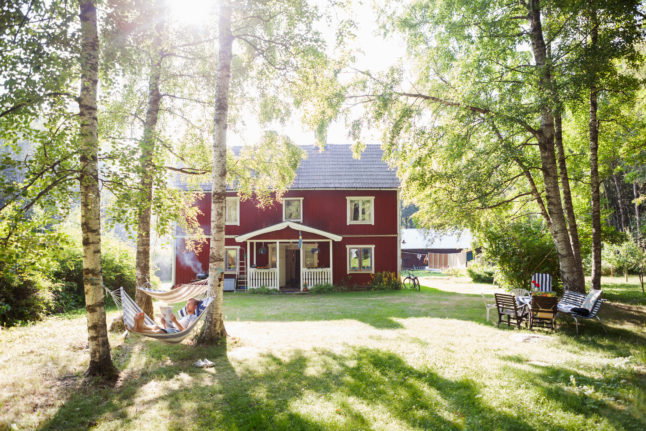The Mello or ABBA obsessive
This foreigner is a true Swedophile, someone who came to Sweden neither for love nor work, but out of an obsession with the country itself. Their journey to Sweden may have started back in 1999 when, as a nine year-old, they witnessed the Swedish schlager singer Charlotte Perrelli win Eurovision with “Take Me to Your Heaven”.
This sparked an obsession with both Eurovision and Sweden’s Melodifestivalen contest that grew throughout their teens. In their early 20s, they travelled to Malmö when Sweden hosted the song contest, a year they later arrived at Lund University to study, and eight years later they’re still here.
The story comes with variations. It might have been ABBA, it might have been Loreen. This variant of Swedophile most often comes from the geekier end of the gay community (although you do meet the occasional female ABBA fanatic and even the odd straight male Eurovision fanatic) and they tend to settle into Sweden impressively well, learning the language, getting a job, and keeping themselves entertained by tracking the entries for each year’s Melodifestival from the very earliest stages.
You can meet some ABBA and Mello obsessives in the first of our Swedophile series here.

The business executive and trailing spouse
Several years into their career at one of Sweden’s business behemoths — say IKEA, Volvo, Tetra Pak, or Alfa Laval — the foreigner has realised that a spell at head office is a necessary stage in their advancement. The foreigner is normally planning a stay of three to five years, and sees the posting as little different from any other expat posting, apart from the fact that it will give them crucial insights into how the highest decisions in their company get made. With a large number of international offices, these companies have employees from all over the world, meaning the business executive could come from a European country, the US, India, China, or South America.
The business executive usually has no intention of staying for the long term and puts little effort into integrating, as they’ll be returning home soon anyway. If they bring their children, they put them into international schools. They aim to socialise with their colleagues (after all, networking is the main reason for their stay), so find the relative lack of after-work socialising in Sweden frustrating. Their partners have more often than not already put their careers on hold, so throw themselves into expat-type activities, such as the American Women’s Club or Hash House Harriers, the beer and running clubs that help expats bond worldwide.

The Swedish metal devotee
This foreigner most often grew up in a country such as Mexico, Syria, or Italy, where heavy metal is a niche pursuit. They got into the music in their teens, and gradually developed a more refined taste which included Swedish bands like Bathory, Opeth, Meshuggah, At The Gates, Entombed, or Watain.
When they realised that the bands they loved all tended to be based in Sweden and Norway, they became curious. They might have developed an interest in Nordic mythology. Then there’s the plus of moving to a climate where it’s possible to dress all in black without overheating.
This foreigner regularly attends gigs and festivals, and might join a band. As a result, they tend to settle in quite well, slipping easily into the Swedish metal scene. You can meet two metal devotees in the first of our Swedophile series here.
The rootless lover (in Sweden by mistake)
They were out living and working (sort of) somewhere exotic or romantic like Dubai, India, South America, or Berlin, when they fell head-over-heels in love with their Swede. Neither side of this romance really had a detailed life plan (even though they might be edging into their 30s), but when the Swede finished their adventure to come home and do something more serious, the foreign boyfriend (most often) or girlfriend (occasionally) trailed behind.
For the rootless lover, Sweden is just another stop in life’s big adventure. They throw themselves into learning the language (at least initially), but often struggle to find work, and discover that their carefree, footloose soulmate becomes more sensible and reserved back on their home turf.
You might find rootless lovers working in your local pub, café, or Italian restaurant. If they’re young enough, they sometimes settle down, study at a Swedish university, and make their life here. But if they don’t end up getting tied down with a family, after a few years many end up moving along to the next chapter of their story.

‘Bullerby Syndrome’
You have to get out of Sweden’s big cities to find them, but if you spend enough time in almost any Swedish small village, particularly in Småland, Blekinge, or northern Skåne, it won’t be long until you stumble on the local German or Dutch family.
For decades, nature-loving individuals have been fleeing north to Sweden from the more heavily populated areas of Germany and The Netherlands, buying up small, run-down, old farms — ideally wooden and painted in fetching falu rödfärg paint — and trying to live out their idea of the good life.
The phenomenon is so common it even has a name, Bullerbysyndromet, or Bullerby Syndrome, after Astrid Lindgren’s stories about a gang of children living an idealised life in a small Småland village.
“The Bullerby-Syndrome states that Germans see Sweden as a very romantic country,” Charlotta Seiler-Brylla, a professor of German at Stockholm University, told The Local back in 2018. “They see it as a country with lots of nature, in which everything is stable and in good order.”
These foreigners tend to move as a family, and at least one of them tends to have a job they can do remotely — say computer programming. They might have chickens, horses, or goats, and they tend to let their children run wild.
They might also keep one foot back home, using their run-down Swedish torp farmhouse as a summer house, and taking the car ferry back and forth from northern Germany. You can read about Bullerby Syndrome here.

The Thai bride
Although stereotypes suggest that these women are subservient and oppressed, this couldn’t be more wrong. Thai women who come to Sweden, either after meeting a Swede on holiday or through a marriage service, are one of Sweden’s most successful immigrant groups. They’re often fiercely independent and the more dominant and outgoing partner in their relationship.
After five years in the country, the employment rate for Thai women is nearly as high as women born and bred in Sweden, and they have an unusually high rate of business ownership.
They often end up in quite remote areas, as local-born Swedish women tend to leave to move to the big cities, creating a gender imbalance, and they fit surprisingly well into rural life, where they pick berries and mushrooms, make jams, and run small-town Thai restaurants or food trucks.
They are in a hurry to make money, which they send back to relatives back home, and they also form self-help networks with other Thai women, giving new arrivals a head start in setting up business.
The Scandi Noir obsessive
Remember the wave of Scandi Noir, when Daniel Craig starred in The Girl with the Dragon Tattoo, and crime series like Denmark’s The Killing, and Sweden’s The Bridge, took the world by storm? This, admittedly fairly rare, type of foreigner watched it all and then went on to read the books, fanatically absorbing all the Scandinavian crime literature they could get their hands on.
They were teenagers when the wave broke, and it generated a fascination with Swedish culture and language, which they started studying themselves as a hobby. A few years ago, they arrived in Lund, Uppsala or Stockholm to study, and they’re still here.
This type of foreigner is so gifted at languages that they are near-fluent in Swedish even before they arrive, and tend to be young, making integration relatively easy.
The long-term partner (back home with their Swede to breed)
This variant of the ‘moving to Sweden for love’ type tends to be more professional. They’ve spent 20 years living in London, Paris, Milan, or New York working in a serious job like banking, accountancy, or the law, have paid off most of their mortgage and built up a bit of a nest egg and pension.
They met their Swedish wife or girlfriend (it’s pretty much always a woman) years ago, and for some of them, their partner’s Swedishness has just been a bit of added spice. They spent some beautiful summers at the family summer house in the archipelago, celebrated a traditional Swedish Christmas or two, and learned a bit of the language. But their partner’s English (or more rarely another language) is so fluent, and their grasp of the foreigner’s culture so complete, that there has been zero friction.
Until now, that is.
A couple of years ago, the Swede expressed a wish to return home. They might already have children under the age of ten, and they might want to make sure they can speak and act like proper Swedes, or they may have decided that it’s time to start a family.
For some of these foreigners, this is welcome. Living in the US or UK, there has always been an imbalance in the family, and this is a chance to put things right. If the couple already has children, the foreigner can finally learn enough Swedish to join in. And if they’re just starting a family, they can advantage of Sweden’s generous parental leave and subsidised childcare, and be a much more hands-on Dad than would have been possible back home.
For some, though, the decision to move to Sweden comes as a shock. But as the couple has already spent at least five years together in the foreigner’s home country, they don’t really have a leg to stand on, particularly as they’ve reached the stage in their career when they can actually afford to scale back a bit.
If the foreigner manages to arrange a job in Sweden — which is by no means impossible given their glowing CV — the move can work very well indeed, and many end up raving about the better work-life balance they get as a result. Quite frequently though, they land with a bit of a bump, for the first time having to put their career in second place.

The foreigner who moves to Sweden for the statistics
This type of foreigner is resolved to live life rationally. They move to Sweden after studying the statistics of various countries and deciding that, taken together, Sweden is the best country in the world in which to live. This type of foreigner is educated and frequently quite gifted. They might be a scientist, academic, or computer programmer, meaning they tend to find work easily.
They may end up happy with their choice, or they may discover that Sweden has less appealing sides which the numbers miss out on.
A subset of this group are the true believers in Social Democracy, foreigners who see Sweden as the purest expression of a political ideology they believe represents the best way to organise a society.
You can meet three foreigners who moved here for the statistics in the second of our Swedophile series here.
The holiday fling
This foreigner has been living and working around the tourist areas in their home country for a few years when they get together with their Swede. Often from a less economically developed country with a better climate, such as Cuba, Morocco, Kenya, or Bolivia, but also sometimes from other countries popular with Swedish backpackers — say Australia or the US — they come to Sweden with their Swede (most often a young woman) who then gets pregnant shortly afterward.
The transition from beach dude to pram-pushing pappa can be tricky, and these foreigners often end up hanging out and partying, sometimes late into the night, with others in a similar situation.
If the Swede makes an effort to help their foreign boyfriend bridge what can be a fairly daunting cultural divide, this can go well.
If, however, they do not, leading to the couple splitting up, the foreigner is left with the choice of remaining in Sweden while the Swede has main custody of the child, or returning home alone and heartbroken.
The design or fashion freak
Was it a childhood visit to IKEA, or a chair they found as a young person? Tor this person, a love of Swedish minimalist design or fashion preceded their love of the country itself. They might have built their own little island of Swedish minimalism back in their home country before deciding to go all in and move to Sweden itself. For many, the love of Swedish design extends into a fascination with Sweden urban planning, and even with the Swedish welfare state. For them, Sweden is the home of simple, efficient solutions, a well-designed country as well as a country filled with good design.
To get an idea of the appeal, you can look at a blog like My Scandinavian Home (whose British founder actually came to Sweden for love), or you can meet some real-life design freaks in the third in our Swedophile series.
Do you fit any of these categories, and did we miss anyone out? Please tell us in the comments below.






 Please whitelist us to continue reading.
Please whitelist us to continue reading.
Came here to study and accidentally fell in love.
That was 25 years ago now.
Went home, finished University, then came back to stay.
Seriously doubt I’m the only one who thought they were coming here as an adventure, with no intention of staying, but who destiny had other ideas for.
Of course your focus is on people who are in Sweden intending to stay awhile. But there is one category of foreign visitors who tend to come often and spend more time than the average tourist that you missed. That is the person who has “roots” in Sweden and has relatives or close friends still living there. I myself might somewhat fit in that category. I was a summer exchange student to Sweden in 1959 (yes, I’m 80 years old!) and since then I’ve visited the country 8 times, never staying less than 2 weeks and usually several months. I’m still in very close touch with my exchange “brother”, and with his family that has grown by several generations over all those years. In fact, I just returned home after 3 weeks in Sweden, celebrating mid-summer and that fact that my Swedish “brother” and I have both made it to age 80 in still pretty fair shape! I have observed that many Swedes that I have met have relatives in the US who visit frequently and stay in close touch. As a group, I would say we pretty much blend into the background (except our Swedish is often rather poor!) and pretty much accept local culture completely. Of course, in my case, I can say that Sweden, and it’s culture, have changed tremendously since I first visited in 1959!
None of the above. UK national married to Swede working in Swedish Embassy in Bangladesh while working for the UN in early 1970s in peace keeping. food relief and then development. Since then neither have lived nor worked in Sweden. Retired to Sweden in 2024. Two children and five grandchildren living in UK and all speak Swedish and spend summers with us each year.
Another category: retired parents or grandparents whose family lives in Denmark (especially Copenhagen), who want to be able to pop over the border every couple of weeks to see them, who can’t easily move to Denmark, but who could move to Sweden.
Another category: retired grandparents whose family lives in Denmark (where a retirement visa doesn’t exist) and who realise that they can buy property in delightful towns like Malmo and Lund and so be able regularly to pop over the bridge to see their grandchildren.
Så, looks like nobody moves to Sweden for the Swedes themselves, such a shame
None of the above. High tech worker who moved to Sweden for the job but fell in love with the lagom lifestyle, nice summers, gorgeous winters and is attempting to fit in best they can 😀
What I think is interesting is people that are “intersectional” across these archetypes. I was a “statistics” person years ago from afar, and my wife is a bit of a “roots” person as nesika4252 describes as well as a “scandi noir” devotee. Ultimately, it was the mechanics of taking a job with IKEA based in Sweden (so “business executive and trailing family”) that actually got us living here. The labels are useful, but likely most of us tick more than one.
None of the above. We both met while working for the same company but he in Sweden, me in Malaysia. Went on to have a long distance relationship for 2 and half years before we decided to try for a work transfer within the company. My transfer to Sweden came through first and the rest is history. So technically moved here for both love and work 😉.